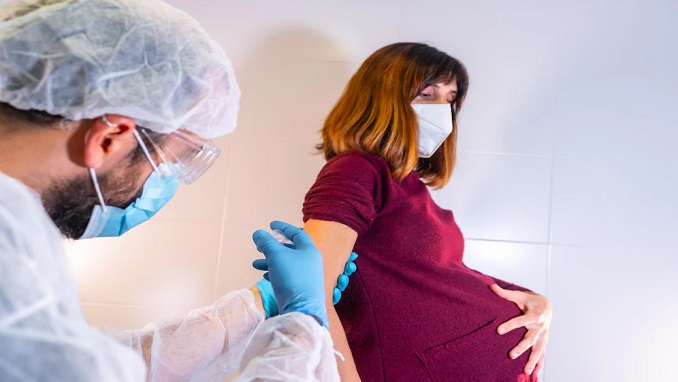Pfizer’s vaccine aimed at protecting infants against severe respiratory syncytial virus (RSV) could roll out as early as this summer as the Food and Drug Administration (FDA) accepted the company’s Biologics License Application for priority review.
Pfizer said in its press release that the FDA is reviewing its vaccine candidate on an expedited basis and “has set a Prescription Drug User Fee Act (PDUFA) action date of August 2023,” just before respiratory virus season.
According to the National Institutes of Health (NIH), the virus annually causes “approximately 58,000 hospitalizations among children under five.” Furthermore, RSV is “the most common cause of bronchiolitis in children younger than one-year-old.”
The bivalent RSV prefusion single-dose vaccine RSVpreF – in essence, a maternal vaccine – is administered to expectant mothers in the late second to the third trimester of their pregnancy.
The shot triggers antibodies that are passed to the fetus. This protects infants against RSV from birth through the first six months of life.
“If approved, RSVpreF would help protect infants at their first breath from the devastating effects of this infectious disease, which though well-known, has been particularly evident throughout this RSV season,” said Pfizer’s Annaliesa Anderson, Ph.D., Senior VP and CSO, Vaccine Research & Development.
As we previously reported, citing data from the clinical trial, the Pfizer RSV vaccine demonstrated 81.8% efficacy “for severe medically attended lower respiratory tract illness through the first 90 days of life.” Furthermore, the vaccine maintained a substantial efficacy of 69.4% “for infants over the six-month follow-up period.”
The race for an RSV vaccine
Although several vaccines are in the pipeline, there are currently no vaccines available for RSV. However, Pfizer, GSK, Moderna, and Johnson & Johnson “are all racing toward the finish line to get RSV shots into patients’ arms.”
All four companies are members of the Biotechnology Innovation Organization (BIO).
GSK’s vaccine “reduced RSV cases in adults 60+ by 83% in the phase 3 trial of the jab.”
As Bio.News reported, the FDA recently accepted Sanofi and AstraZeneca’s joint application for Nirsevimab, a pediatric RSV immunization they co-developed. Regulators already approve the vaccine in Europe and the UK.
In a Phase 3 clinical trial, “Nirsevimab showed a 74.5% reduction in lower respiratory tract infections caused by RSV requiring medical care in healthy infants.”
The vaccine is “the first investigational immunization designed to protect all infants across the RSV season with a single dose.”
Pfizer has another candidate in the pipeline for older adults, as well. Last August, the company announced results from its Phase 3 clinical trial, which showed the vaccine demonstrated an efficacy of 85.7% when administered to adults 60 or older.
The company is expecting FDA’s decision on this vaccine candidate in May.




